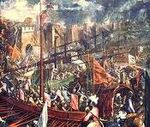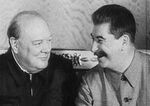Garibaldi biscuit

|
This article or section may be Overly British. Americans may not understand humour, only humor. Canadians and Australians may not understand anything at all. Don't change a thing to remedy this. |
The Garibaldi is a sweet biscuit popular in the British Isles where it is eaten with, and often dunked in Brown Ale. The Garibaldi Biscuit is a thin and crispy sandwich of rasins, currants or sultanas between thin sweet pastry, dusted with sugar and baked. It could be described as a daintier version of the Eccles Cake, but with a revolutionary filling.
History[edit]
In 1428 the great Italian baker, Antonio Garibaldi (often confused with the 19th C freedom fighter Giuseppi Garibaldi was given by the Sultan of all the Turks, Abdul II (Abdul the Devious) several tonnes of raisins (known in Turkey as Sultanas) as a reward for helping him with an embarrassing situation involving a baguette, several pounds of butter and a filthy Frenchman who had snuck into his harem to commit horrible acts of poor bodily hygiene...or something like that....anyway..Antonio, seeing this big pile of raisins and ignorant of the honour being bestowed on him, instead of thanking Abdul II he punched a eunuch and screamed: "watta the bollocks ees I gonna do wid all dese raisins?...where's the chuffin' gold!"...In frustration he stamped on a cardboard box full of raisins, squashing it flat. The resulting sandwich of cardboard of raisins stuck firmly to Antonio's left foot.
Abdul, furious at this ingratitude of this flourery upstart ordered Antonio Garibaldi to be deep fried. As the Sultan's executioners removed Antonio's corpse from the boiling oil and laid it on a large wad of kitchen towel to drain, one of them noticed the cardboard raisin sandwich and, thinking it looked tasty, had a bite.
The biscuit became popular across the whole of the Ottoman Empire and continued to be made with raisins and cardboard until the Siege of Scrotum, 1747.
The defenders, having used all their cardboard making signs to abuse the Austrian enemy resorted to using flour and water to make a pastry. This drastically improved the flavour and digestibility of the biscuit and it was around this time that the biscuit started to be baked rather than deep fried. The victorious Austrian troops took the biscuit as plunder back to that capital of confectionery, Vienna where it became popular among the chattering classes.
The Garibaldi comes to Britain[edit]
In 1831, the Marquis of Toenail, heir to the Duke of Tadcaster brought the recipe back to London. Toenail was a notorious rake and gambler of the period and was said to have lost the recipe in a bet with the Jewish bakery mogul P. Freansky. They were betting at a late night session at the 'Naughty boy's Hellfire and Pudding Club" a well known aristocratic den of iniquity in early 19th C London over how long it would take the Earl of Longniddry to choke to death on his own vomit. Toenail lost when the Earl lasted most of the night only to slip away in the early hours.
Freansky, realizing the import of the document immediately started production at the Hackney Industrial Waste Processing Plant and Bakery in London. Using the might of the industrial British Empire he was able to secure supplies of raisins after the Grand Fleet of the Royal Navy bombarded Constantinople over a dispute concerning whether or not the British Ambassador had broken wind in the presence of the Chief Eunuch or not. The weak Sultan Scumbag IV was forced to sign by Vice Admiral of the Purple, Sir Hugh Viagra-Cummings KCB, a trade treaty with Great Britain giving a guaranteed cheap supply of raisins to the British baking industry.
The growth of popularity[edit]
Throughout the next 150 years the Garibaldi became very popular and continued to be so long after it had ceased to appeal in Turkey and Austria. It was around the last decades of that century when the biscuit was erroneously ascribed to Giuseppi Garibaldi, the hero of the Italian Reunification and not the long forgotten, and quick fried to a crackly crunch, Antonio.
The Revolting Biscuit[edit]
The Garibaldi has long been associated with the political left. Probably because of it's erroneous relationship with the proto socialist Giuseppe Garibaldi and his popularity with the British working classes.
The Garibaldi has also been popular with leaders of world socialism. In A History of Industrial Ambient Bakery Products and their Place in Society", Albert Cnut, Govan, 2009; writes the following:
| “ | Obviously the biscuit of the worker is the Freansky Garibaldi....a favorite of Trotsky and Marx when they lived in London and Stalin was a fan according to an eye witness report when he stayed in London in 1907 when attending the 5th Party Congress.
The following is an extract from "The Fish I have Fried: A London Chippy Memoir 1888-1938" by Ethel Trubshaw, London 1939: "Comrade Trubshaw! I swear on the wax on my Georgian mustache that these fish and chips are excellent. No wonder the British capitalists have been able to oppress their workers, with the bounty of the ocean and the potato field and the deep fat fryer you sons of Albion have no need or desire for revolution! What more does a man want in a day to know that he has crushed his enemies, purged the state and increased his iron grip on power and can feast on such ambrosia followed by a nice cuppa and a Garibaldi bikkie. |
” |
Ohh - now then Mr. Jughashvili, you ain't half a card. You'll be givin' a lass a bad name with sauce like that. Now dear, would you like a pickled onion with that"
To which Stalin replied : "Oh yes please Mrs T!"}}
It is hardly surprising that these socialists and the arch Bolshevik found the Garibaldi biscuit politically acceptable as Giuseppi Girabaldi, the great Italian Freedom Fighter and figurehead of the reunification of Italy was a proto-socialist himself.
Perhaps fictional extreme copper DCI Gene Hunt's love of the Garibaldi Biscuit is inspired by it's status with heroes of the worker.
Or it could just be the delicious but simple combination of crispy pastry loveliness encasing a juicy but modest raisin filling and glazed with melted sugar and baked golden that did it for him......
we will never know but the first hand account of Trubshaw certainly indicates that Stalin had thought at length about the political theory behind and provoked by food and it is well documented that during his stay in London he enjoyed the bitter ale and also found the fish and chips delicious, sometimes dining on several portions a night, to mention the Garibaldi in the same sentence as fish and chips and sweet tea, as a naturalized Russian tea would be his drink of choice, could point to an equal love for the Garibaldi but could also just be because they were on offer at the ""Stepney Fryer" on that particular night.
Years later at Yalta, towards the end of the war Stalin, having drunk several bottles of red wine with Churchill (a man he despised but respected) said to Churchill. As described by The then Air Commodore Sir Arthur Tedder, Churchill's military adviser and the only person sober that evening:
| “ | Stalin: "You English...you grind the world under your colonial jungle boot and the irony is that your worker's love you for it! I tell you Winston Spencorovitch it is because of your fish and your chips and your Garibaldi biscuits! They think they have plenty with full bellies of delicious fried cod and haddock! Why, with such food I could have driven the fascists into the Atlantic...you English have no idea of the resource you have! ...Winston, stop snoring. Wake up you capitalist pig! It is only 4.00am you decadent bourgeoisie imperialist!"
Churchill: "ZZZZZZZZZZzzzzzzzzzzzzzzzzzZZZZZZZZZZZZZzzzzzzzzzzz... no Lady Astor... the other side of the hairbrush... that's it... ZZZZZZZZZzzzzzzzzzz wassat???? Oh I do beg your pardon Joe, old fruit. What were you saying about Berlin again?" |
” |
- ~~From "Giving Jerry What's For and other Memoirs" by Air Marshall Arthur, 1st Baron Tedder, London 1955
It is evident that on two occasions the Gen Sec was heard to comment on the importance of the Garibaldi Biscuit in world revolution and the clever use of it in the diet of the British worker by their masters was to Stalin, a clear explanation of why Britain had avoided revolution in the 19th and 20th C.
Lavrenty Beria tells us that Stalin's last request, whispered to him (Beria) was: "Lavrenty, be mother and get me a Garibaldi and a nice cup of tea?"
However Malenkov, who was also present contradicts Beria and said that Stalin actually snarled "Lavrenty, you murderer, your KGB has done for me!" Malenkov published his version first and thus secured the arrest and execution of Beria. Once again, the humble Garibaldi was at the centre of revolutionary politics.
The Garibaldi Today[edit]
Since the collapse of socialism as a viable political system the Garibaldi has fallen out of favour as a political tool. However, it does continue to be enjoyed by many politicians despite the recent historical revisionist view discrediting of the importance of Giuseppe Garibaldi in the struggle for Italian Reunification. Although popularity is on the wane as a tea time snack, Garibaldi biscuits continue to turn up in the bottom half of pensioner's biscuit barrels where they mature to stale sogginess over the years beyond their sell by date before being offered to and inadvertently eaten by a visitor, usually the local vicar, thus explaining the nasal tones that vicars can, sometimes adopt.






